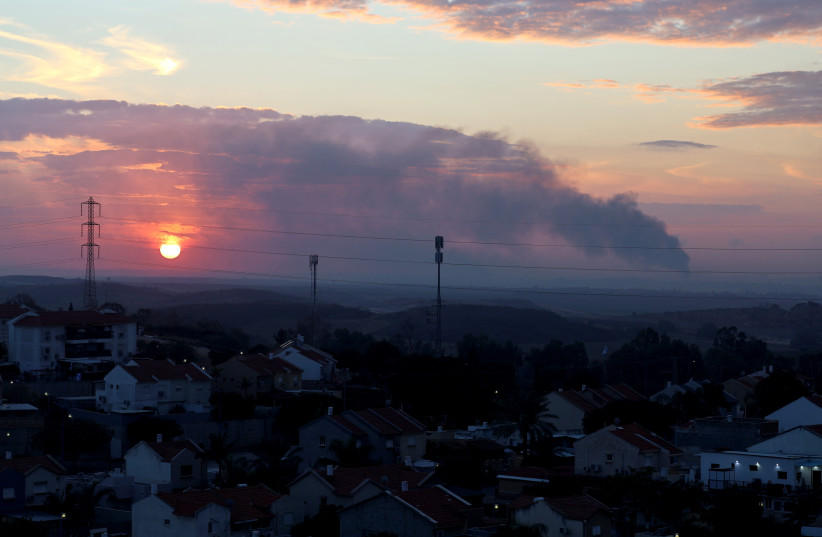We started working together as part of a journalistic project in the previous decade. We thought it would help encourage dialogue. We wanted to show the everyday reality in Gaza from the perspective of a secular Palestinian student who opposes Hamas. But Fares stopped responding to messages. This column is about him, and all of us.
Fares liked to say that with all due respect to the Israeli-Palestinian conflict, the real reason World War III would erupt is the ideological dispute between iPhone and Android users. Every time another round of fighting started between the IDF and Hamas, I would send Fares a message to ask about his well-being and his family's. It became a habit. Like some friends I only call on holidays and birthdays, or some people I know will only call me when they need something. I only called Fares when images of Gaza in flames started running on the TV screen, knowing he was there, somewhere, with his damn iPhone.
We never had a conflict, as two individuals, except over Android and Apple. We talked sensibly about IDF operations, Hamas' rule, Israeli politics, and French philosophy. In the timeless debate between Camus and Sartre regarding human nature, someone born into Gazan reality should naturally gravitate towards Camus' "The Rebel," while a native Tel Avivian should prefer (Jean-Paul) Sartre's humanism. Ironically, we both preferred Simone de Beauvoir's philosophy. Only when we started talking about our phones (and he always wanted to talk about our phones!) did we realize how big our differences were. He always had the latest iPhone, I always had some Chinese Android. You haven't heard real human arrogance until you've heard a young Gazan patronize a Tel Avivian with a Xiaomi.
The truth is, we never met. We started working together remotely as part of a journalistic project at the beginning of the last decade. It seemed natural then, and now it seems as logical as a prime minister under criminal indictment. We wanted to show the everyday reality in Gaza from the perspective of a secular Palestinian student opposed to Hamas, and not hateful towards Israel or the terrible "West."
We thought it would help encourage dialogue. I still believe in that, but I also know there's no chance an Israeli media outlet will dedicate space to a personal column by a Gaza resident anytime in the next decade, at least. In our conversations, as in the project itself, there was very little politics. We didn't talk about the explicit word "peace," just as we didn't talk about other imaginary things like unicorns or Israeli soccer. We had much more interesting things to discuss.

Was Fares ever truly free? Is he free now?
Fares' column was supposed to continue long-term, but it was cut short. Fares was afraid to continue, and rightly so. He received a "friendly" message from Hamas that it would be unwise for him to keep cooperating with the Israeli media. Thus, the man who wanted to send a message of reconciliation was forced to be silent. In hindsight, I understood that this didn't really surprise him, just as I understood that his real name probably wasn't Fares. He was simply afraid of being found, right from the start. I enjoyed the thought that I was doing something good for Fares and people like him in Gaza, not realizing how privileged that thought was. On the other side was a non-political person. A nerd with glasses and a technology obsession, with a rolling laugh. And he needed courage to tell his story.
On October 7, kindness and naivety seemed so far away, almost nonexistent. Fares had stopped responding to my messages long before. He might have been caught by Hamas forces, might have been hurt in IDF attacks, might have contracted COVID and not survived, might no longer have an iPhone, and no way to communicate with the outside world. I don't know which possibility is worse.
Jean-Paul Sartre claimed that a free man is one who can realize his plans. I'm not sure Fares was ever truly free. Yet, I hope he somehow managed to fulfill his dream, to escape from the world's largest open-air prison, and start a new life in California, as he always dreamed. I wish we all fulfill our dreams. I wish for peace and security, and if not, let's settle for a bit of compassion.
